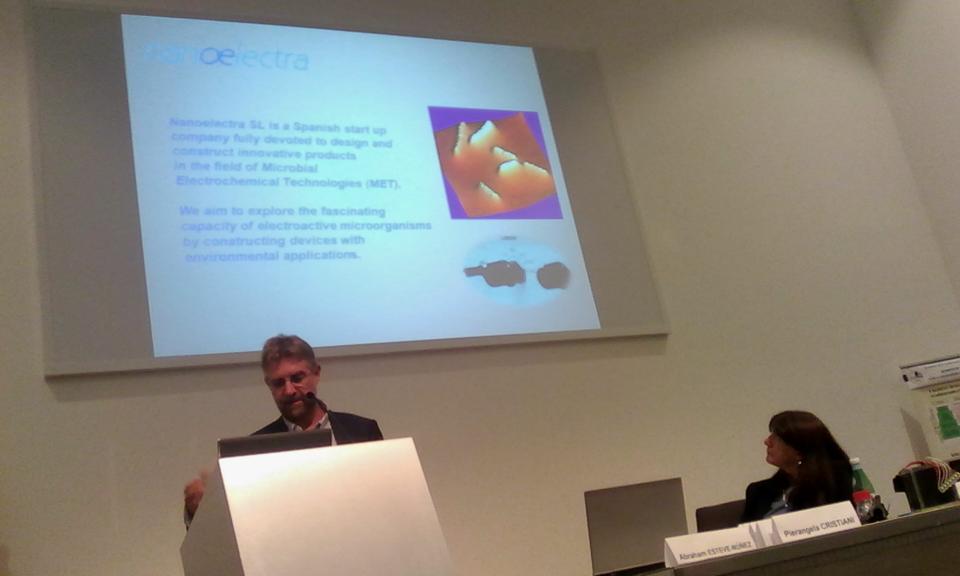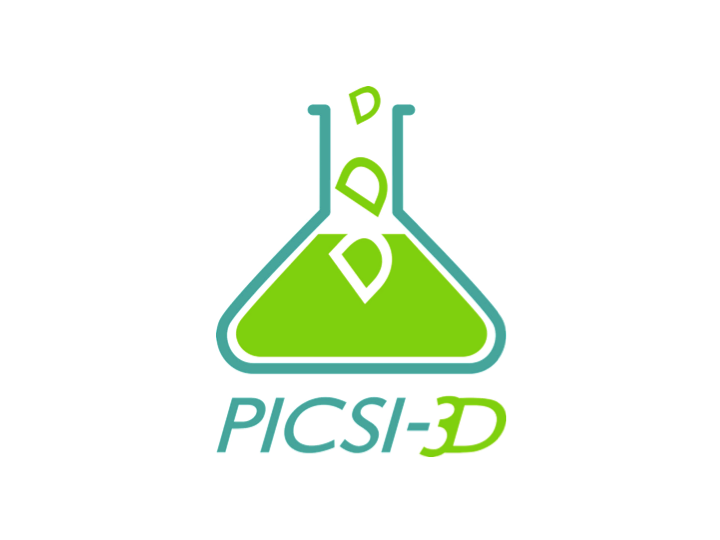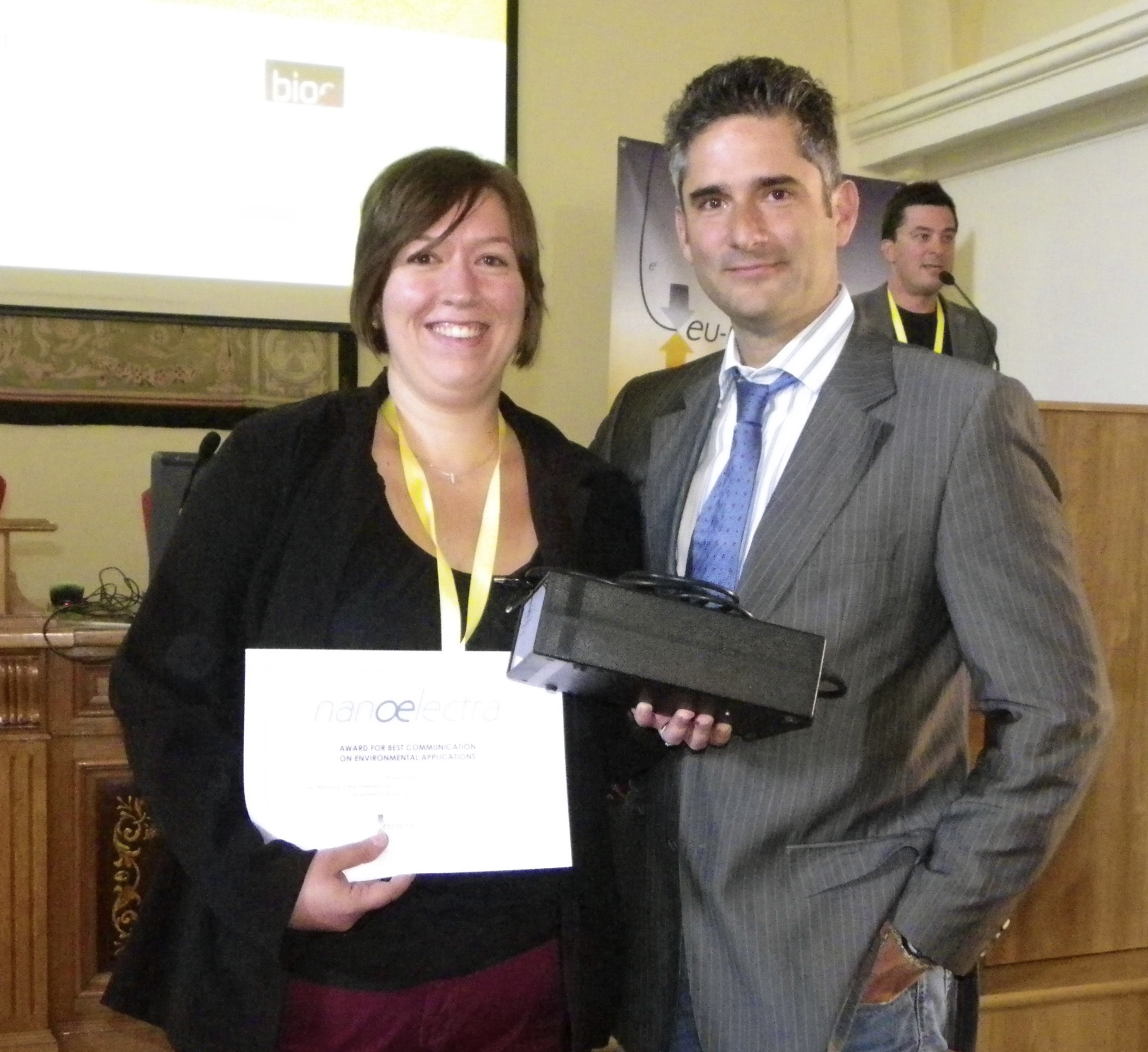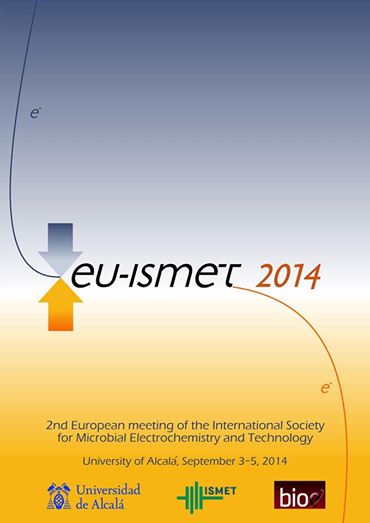As part of the project Bio-Electric Light we was presented at EXPO Milano 2015 during the workshop organised by Università Degli Studi di Milano and RSE (Ricerca sul Sistema Energetico). The workshop was aimed at a general audience to introduce bioelectrochemical systems (BES). Prof Abraham Esteve Núñez talked about the mechanisms of energy production from bacteria.
Nanoelectra collaborates with a research project for high school students
Nanoelectra will provide their control equipment for the development of a research project aimed at high school students The PICSI-3D project from Bioelectrogenesis group of the University of Alcalá is funded by the Ministry of Economy and Competitiveness through the FECYT. It aims to bring the laboratory to secondary schools, beyond the classical approach through conferences, lectures or science fairs, and convert students in main participants in research through the design, development and dissemination of their experiments based on MET.
Throughout these months, students will learn to use the potentiostats to control and measure their systems.
Nanoelectra participates in CDTI technology mission to India
Nanoelectra will travel to India as part of the technological mission of CDTI and PLANET. The Centre for the Development of Industrial Technology (CDTI, Ministry of Economy and Competitiveness), the Platform for Environmental Technologies (PLANET) and the Spanish Technology Platform for the adoption and diffusion of Electronic Technology, Information and Communication Technologies (PLANETIC) jointly organized Spain’s participation as guest country at Alliance Global Innovation and Technology Platform 2014, to be held from 20-22 November 2014 in Delhi (Greater Noida), India. An institutional delegation led by CDTI-MINECO participate in the event.
This event is part of the Expo Knowledge, the International Forum for Technology, Innovation, Education, Entrepreneurship, Design and Industrial Property promoted by the Indian government. Spain is participating for the second time with delegations from Canada, Finland, Israel, Japan, Slovenia, Sweden and Taiwan.
Award for Best Communication on MET applied to Environment
Communication entitled An innovative bioelectrochemical approach to accelerate hydrocarbonsbiodegradation in anoxic contaminated marine sediments: the ‘Oil-Spill Snorkel’ won the the Award for Best Communication Nanoelectra on MET Applied to the Environment, granted in the EU-Ismet 2014 congress, held at the University of Alcalá.
In the image, author Carolina Cruz Viggi with Pablo J. Pomposiello, director of Business Development at Nanoelectra.
Nanoelectra to sponsor EU-ISMET 2014
Nanoelectra will sponsor EU-ISMET 2014, the second European meeting of the International Society for Microbial Electrochemistry and Technology, to be held in Alcalá de Henares from 3 to 5 September. The conference, organised by Bioelectrogenesis Group from UAH and IMDEA Water in collaboration with ISMET, will bring together 200 experts from institutions and universities from 20 countries will present their latest work in the field of microbial electrochemical technologies (MET, English ).
Nanoelectra bring their equipment (potentiostat) for the seminar Hands-on Workshop on Microbial Electrochemistry, which will take place on September 3. In it, attendees will learn the basics of MET and the main techniques used for the analysis of these systems.
Award for BestCommunication
In addition, Nanoelectra award a prize for the best paper on environmental applications of MET presented during EU-Ismet (Award to the Best Communication on Environmental Applications). The prize will be awarded during the closing ceremony.
Conference of technology transfer at REDFUE
Nanoelectra participated in the conference on technology transfer organized by REDFUE, the Spanish Network of Foundations University. Representatives of the Spanish Patent Office, IBM, the Botín Foundation and the Polytechnic University of Madrid discussed the state of technology transfer in Spain and developed proposals for improvement, both corporate and university levels.




